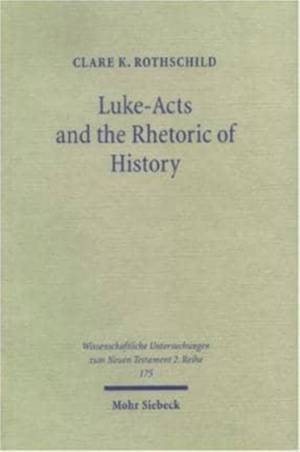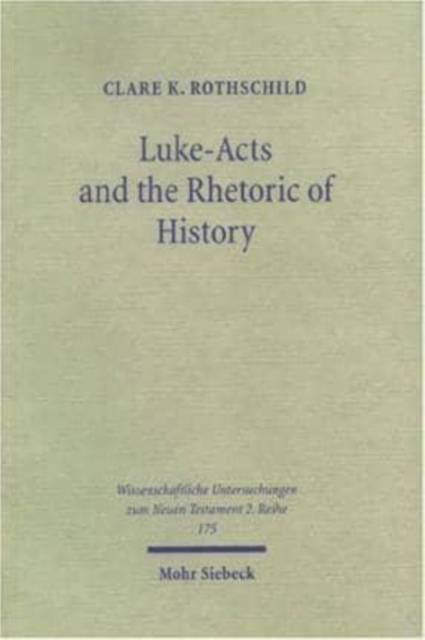
- Afhalen na 1 uur in een winkel met voorraad
- Gratis thuislevering in België vanaf € 30
- Ruim aanbod met 7 miljoen producten
- Afhalen na 1 uur in een winkel met voorraad
- Gratis thuislevering in België vanaf € 30
- Ruim aanbod met 7 miljoen producten
Zoeken
Luke-Acts and the Rhetoric of History
An Investigation of Early Christian Historiography
Clare K Rothschild
€ 189,95
+ 379 punten
Omschrijving
Although the view that Luke-Acts represents early Roman period historiography is widespread, still many scholars express dissent. Resulting from rather narrow understandings of ancient historiography, skeptics favor 'theological' as over and against 'historical' approaches, drawing too sharp a contrast between the two. Though this contrast has been fruitful within Lukan studies, pointing to various apologetic purposes of the works, it tends to overlook that theology is an integral aspect of the composition of all historical works. Clare K. Rothschild aims to shift the focus from revealing and defending theological motifs in Luke-Acts to attention to distinct historiographical methods and interests. She proposes that some of the compositional elements separated by past scholarship as characteristics of Lukan theology - in particular patterns of recurrence, prediction, use of the expression 'dei', and hyperbole - are, first and foremost, elements of rhetorical historiography with counterparts in other Hellenistic and early Roman period histories. As the rhetorical techniques of these historians, they directly support prologue claims to accuracy and truth, not undermining generic understandings of the works as historiography in favor of theological readings, but supporting this designation. While they may have implications for understanding an author's theology, their primary purpose is revealed by their function as tools of the craft of history.
Specificaties
Betrokkenen
- Auteur(s):
- Uitgeverij:
Inhoud
- Aantal bladzijden:
- 387
- Taal:
- Engels
- Reeks:
- Reeksnummer:
- nr. 175
Eigenschappen
- Productcode (EAN):
- 9783161482038
- Verschijningsdatum:
- 1/04/2004
- Uitvoering:
- Paperback
- Formaat:
- Trade paperback (VS)
- Afmetingen:
- 152 mm x 232 mm
- Gewicht:
- 635 g

Alleen bij Standaard Boekhandel
+ 379 punten op je klantenkaart van Standaard Boekhandel
Beoordelingen
We publiceren alleen reviews die voldoen aan de voorwaarden voor reviews. Bekijk onze voorwaarden voor reviews.











